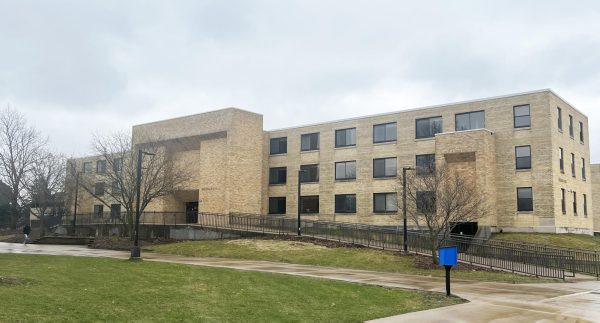May 11 University Staff Senate Meeting
Topics of budget, saving and financial change discussed
On Tuesday, May 11, the University Staff Senate held one of their last meetings of the semester. The meeting was called by University Staff Senate member Greg Bies.
For most of the meeting, a presentation was made regarding the ongoing budget deficit within the university.
Vice-Chancellor Paige Smith told the senators about her vision for budget reduction, stating: “As we have worked through these budget issues over the last few years, one thing that the chancellor has continually asked us to do is stay focused on our mission and vision – ‘Why are we here?’ ‘What is UW-Platteville’s focus, as well as its branch campuses?’ ‘How
do we continue to best serve our students and in what way?’ – so (the chancellor) continues to stress that decisions need to be made and we need to continue to focus on areas to invest and support, and then we can adapt and modify our budget accordingly.”
Staff member Ron Reck followed this up by bringing forth budget projections for the next five years, should nothing be done about the current deficit. Reck’s data projected that should negative trends persist between student enrollment and financial gains, the deficit would nearly triple, from a manageable $6 million to a daunting $29 million. He also predicted that the resulting deficit would result in the need to eliminate approximately 329 positions within the university.
While the COVID-19 pandemic has introduced some new funding opportunities for the university, they can only do so much to help the administration weather the storm. Discussions surrounding this topic have been ongoing in the past several months, with the hope that some consensus could be found regarding a budget that balances between these goals.
The other slides in the presentation were far more optimistic – the committees queried seemed to understand how dire the situation was and individually came up with plans to cut spending in their own departments within the university, each having a tangible plan for ways to cut spending in short order.
While these proposed budget cuts only came with plans through the year 2023, Reck seemed hopeful that following them, the university could generate revenues of approximately $1 million a year, a desperately needed windfall to meet its debts. While it was stated that talks are still ongoing as to how to handle the deficit and that nothing is agreed on yet, it shows that the university is cognizant of how this problem has developed.














